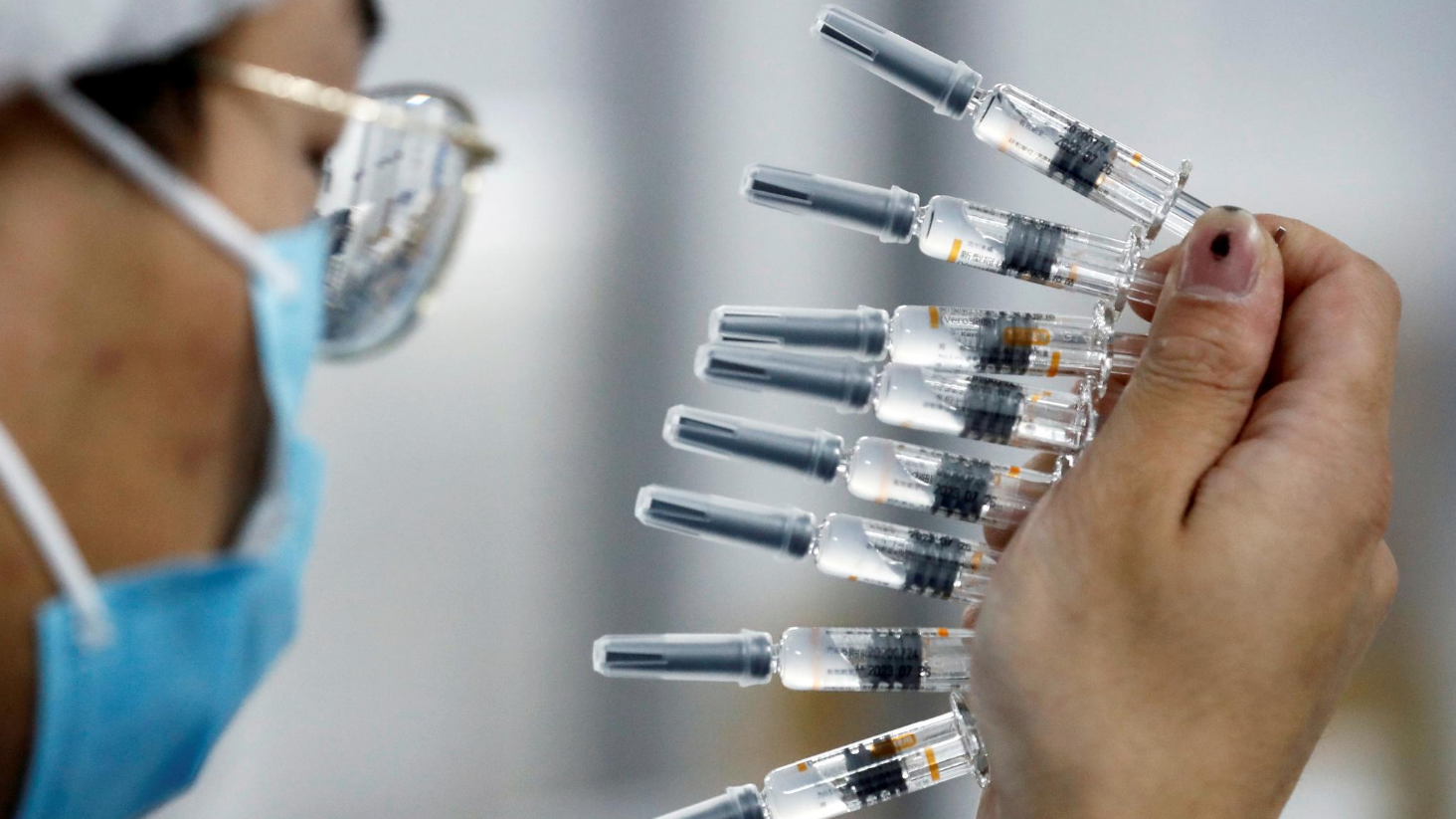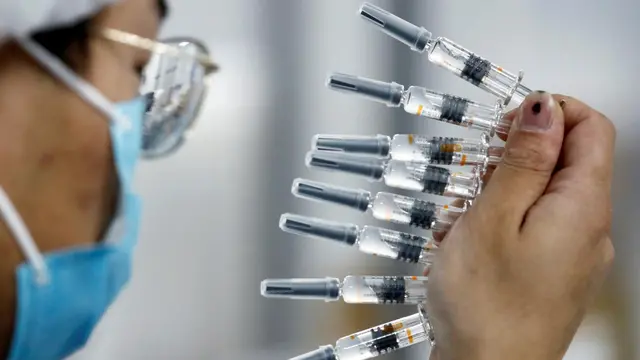
A worker performs a quality check in the packaging facility of Chinese vaccine maker Sinovac Biotech in Beijing, China, September 24, 2020. /Reuters
Almost 98 percent of the adult population of Serrana, Brazil was vaccinated in an experiment to test the efficacy of the Chinese-made CoronaVac vaccine.
A scientific experiment is bringing hope to a small town in Brazil, one of the countries hardest hit by the COVID-19 pandemic. While less than 8 percent of the country as a whole has been vaccinated against the virus, the town of Serrana, in the countryside of São Paulo state, is almost fully vaccinated in the framework of an efficacy study of the CoronaVac vaccine, produced by China's Sinovac Biotech firm.
Because of the mass vaccination, Diego and Mizaele da Silva got married in May this year. Their wedding was originally planned for 2020, but the pandemic put it on hold. Now that both of them and the vast majority of their town have been vaccinated, they decided it was time to say, "I do."
"After vaccination, we felt safer. It's not one hundred percent, but we do feel a little safer," said Diego da Silva.
Nearly 98 percent of the adult population of Serrana – about 27 thousand people – have been accepted to be vaccinated with the CoronaVac vaccine in an experiment to evaluate how mass inoculations impact the number of severe cases, deaths and transmission of the coronavirus. Final results are due later this month, but the local project coordinator, doctor Marcos Borges says early observations are encouraging.
"From the beginning of the project in February until the end of vaccination on April 11, we had five deaths of people who took the first dose and one death of a person who took both doses. But in this patient, symptoms began two days after the second dose, which means the person was already infected before being fully vaccinated," Borges said.
"In this same period, there were 14 deaths among those who did not take the vaccine."
The city's health secretary, Leila Gusmão, said there has also been a drastic reduction in patients hospitalized with COVID-19 and in the number of people showing symptoms and seeking tests.
"Back in 2020, we had an average of 140 to 150 people testing for COVID every day, and now it's down to 30 to 40 tests per day," she said.
Keeping people healthy and saving lives is the main goal of vaccination. But in Serrana, immunization is also boosting hopes of an economic recovery following the crisis caused by the pandemic.
For the owner of Ro Salgaderia snack bar, José Antonio Issa, the most painful consequence of the virus was the death of a much-loved uncle. But his business suffered too, with revenue down about 70 percent. Now, customers are returning, and revenue is up to about 80 percent of pre-pandemic levels.
"The people of Serrana have regained the right to dream about the future. You look at the people, and it seems they have regained their freedom," he said. "Of course, there are limits, but hope is back."
The authorities warn that despite the widespread vaccination, the people of Serrana still need to stay vigilant, wear masks and practice social distancing. But it seems clear that the vaccine has spread the hope of better days ahead.
 简体中文
简体中文

